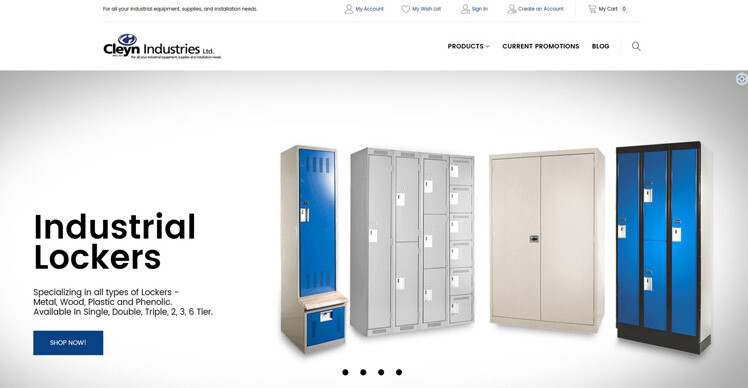eCommerce AI | Web Apps | AR/VR Software – ECA Tech
- Home
- Drupal eCommerce: 10 Tips for Building a Scalable ONline store
Drupal eCommerce: 10 Tips for Building a Scalable ONline store

November 8, 2024 - Technology
Introduction
As eCommerce continues to grow, businesses face the challenge of building online stores that not only serve customers efficiently today but also scale seamlessly as demand increases. Selecting a robust, flexible platform is crucial to achieving this, and Drupal eCommerce has emerged as a powerful solution that meets the needs of modern online businesses. Known for its flexibility, security, and scalability, Drupal offers a range of eCommerce tools and modules that empower businesses to create tailored eCommerce experiences, handle high traffic, and integrate with essential third-party services.
This article explores how Drupal eCommerce can help businesses create a scalable and adaptable online store. We’ll look into key modules, customization options, best practices, and real-world case studies that highlight how Drupal eCommerce can serve as the foundation for a thriving digital storefront.
- Secure
- Flexible
- Robust
- Customizable
Why Choose Drupal for eCommerce?
Choosing the right platform is fundamental to the success of any online store. Drupal eCommerce stands out from other platforms due to several unique advantages:
-
Customization and Flexibility: With Drupal, businesses have the freedom to build custom eCommerce experiences. Unlike many rigid platforms, Drupal eCommerce allows complete control over every aspect of the store, from the user interface to checkout workflows.
-
Scalability: As a content management system, Drupal is designed to handle large amounts of data and traffic. Businesses don’t need to worry about outgrowing the platform because Drupal eCommerce scales smoothly.
-
Security: Drupal is known for its high-security standards, with a dedicated security team that regularly updates the platform to address vulnerabilities. This makes it ideal for handling sensitive customer data.
-
Community Support: Drupal has a robust community of developers who create modules, provide support, and contribute to improving the platform. Businesses using Drupal eCommerce benefit from a wealth of resources and tools.
-
SEO and Digital Marketing Capabilities: Built-in SEO-friendly features make Drupal eCommerce ideal for businesses that want to optimize their content and product pages for search engines, driving more organic traffic to their store.
Essential Modules for Building a Drupal eCommerce Store
The power of Drupal eCommerce lies in its extensive module library, which allows businesses to customize and enhance their store’s functionality. Below are some essential modules that help create a scalable and feature-rich Drupal eCommerce site:
1. Drupal Commerce
Drupal Commerce is the core module for building an eCommerce site with Drupal. It provides the foundational tools needed to create product listings, set up shopping carts, manage orders, and process payments. The module is highly configurable, allowing businesses to tailor the shopping experience to meet their specific needs.
- Product Management: Easily create and manage product variations, categories, and attributes.
- Order Management: Track orders from placement to fulfillment, offering visibility into each transaction.
- Payment Gateways: Integrates with major payment providers like PayPal, Stripe, and Authorize.Net for secure payments.
2. Commerce Shipping
Commerce Shipping is a module that allows Drupal eCommerce sites to calculate and manage shipping rates based on location, weight, and other factors. The module integrates with popular shipping providers such as FedEx, USPS, and UPS.
- Flexible Shipping Rules: Set custom rules for domestic and international shipping.
- Real-Time Rate Calculations: Provide accurate shipping costs based on product weight, dimensions, and destination.
3. Commerce Discount
Commerce Discount is essential for running promotions, discounts, and special offers. This module allows businesses to set up various types of discounts, including percentage-based, flat-rate, and “buy one, get one free” offers, directly from their Drupal eCommerce store.
- Promotion Management: Configure discounts based on customer segments, cart value, or specific products.
- Time-Limited Offers: Schedule discounts to run during specific periods, such as holidays or sales events.
4. Commerce Tax
Commerce Tax simplifies tax calculations, ensuring that your Drupal eCommerce site complies with tax regulations across different regions. The module allows for flexible tax rate settings, making it easy to handle complex tax scenarios.
- Automated Tax Calculations: Calculate tax based on customer location and product type.
- Integration with Third-Party Services: Connect with external tax services like Avalara for automated tax rate updates.
5. Commerce Recurring
For businesses offering subscription-based products, Commerce Recurring is a valuable addition to any Drupal eCommerce setup. This module enables recurring billing, ensuring that customers are charged at regular intervals without the need for manual intervention.
- Subscription Management: Set up subscription-based products with ease.
- Automatic Payments: Collect payments on a recurring basis, ideal for SaaS and subscription box services.
Customizing the Customer Experience in Drupal eCommerce
One of the primary strengths of Drupal eCommerce is its flexibility in delivering a unique customer experience. Here are a few ways businesses can enhance user engagement and improve conversion rates:
1. Personalized Product Recommendations
With Drupal eCommerce, you can use modules like Views, Context, and Panels to create personalized recommendations for customers. By analyzing browsing history, purchase behavior, and customer profiles, you can display products that are most relevant to each user.
2. Advanced Search and Filtering
An effective search system is essential for any eCommerce store. Drupal eCommerce offers powerful search capabilities through the Search API and Facet API modules. These modules help customers find products faster with filters based on categories, price, brand, color, size, and more.
3. Mobile-Optimized Design
With more customers shopping on mobile devices, a responsive design is crucial. Drupal eCommerce allows full control over the mobile layout, ensuring that the user experience remains seamless across all screen sizes.
4. Abandoned Cart Recovery
Reducing cart abandonment can significantly improve sales. The Commerce Abandoned Carts module in Drupal eCommerce allows you to capture information about customers who leave items in their cart without completing the purchase. You can then send reminders or offer incentives to encourage them to finalize the transaction.
Integrating Third-Party Services with Drupal eCommerce
To create a fully functional and scalable store, integrating third-party services is often necessary. Drupal eCommerce is highly compatible with various integrations, making it easy to add value to your online store:
1. Payment Gateways
Most Drupal eCommerce stores will require integration with one or more payment gateways to handle transactions. Popular options like PayPal, Stripe, and Authorize.Net have dedicated modules for seamless integration.
2. Marketing Automation Tools
For efficient marketing, tools like Mailchimp and HubSpot can be integrated with Drupal eCommerce. This integration enables automated email campaigns, personalized offers, and detailed analytics, allowing businesses to connect with their audience on a deeper level.
3. Analytics and Reporting
Using Google Analytics and other reporting tools, businesses can gain insights into customer behavior, sales trends, and marketing ROI. These analytics integrations help identify strengths and weaknesses in your Drupal eCommerce site’s performance.
4. CRM Integration
Customer Relationship Management (CRM) systems like Salesforce can be integrated with Drupal eCommerce to provide a holistic view of customer interactions. This helps businesses manage customer data, track purchase history, and personalize the shopping experience.
Case Studies: Success Stories with Drupal eCommerce
Several businesses have leveraged Drupal eCommerce to create scalable and effective online stores. Here are a few examples:
Case Study 1: GreenTech Electronics
GreenTech, a retailer of eco-friendly electronic products, chose Drupal eCommerce to build a store that could handle their rapidly growing inventory and customer base. By using modules for product management, tax compliance, and subscription billing, they created a user-friendly and sustainable online store. Today, GreenTech enjoys increased sales and a seamless checkout experience for their environmentally-conscious customers.
Case Study 2: Gourmet Planet
Gourmet Planet, an online grocery retailer, implemented Drupal eCommerce to offer a highly customizable shopping experience. They used personalized product recommendations and mobile optimization to cater to their diverse customer base. As a result, Gourmet Planet saw a 25% increase in sales within six months of launching their Drupal eCommerce store.
Best Practices for Optimizing a Drupal eCommerce Store
To make the most of Drupal eCommerce, consider the following best practices:
- Optimize Performance: Use caching, image compression, and CDN integration to ensure your site loads quickly.
- Prioritize Security: Regularly update modules and use two-factor authentication to protect customer data.
- Test Regularly: Conduct A/B testing on product pages, checkout flows, and navigation to continuously improve the user experience.
- Monitor Analytics: Track key metrics like conversion rate, cart abandonment, and customer retention to make data-driven decisions.
The Future of Drupal eCommerce
As eCommerce continues to evolve, Drupal eCommerce is positioned to adapt and grow with the industry. With its commitment to flexibility, security, and scalability, Drupal remains a top choice for businesses looking to build sustainable and resilient online stores. The platform’s open-source nature means that developers and the Drupal community will continue to innovate, ensuring that Drupal eCommerce remains a leader in the field.
an unparalleled combination.
Drupal eCommerce offers businesses an unparalleled combination of flexibility, scalability, and security, making it an ideal choice for those looking to build a robust online store. By utilizing the extensive module library, businesses can create highly customized shopping experiences, integrate third-party services, and optimize their store for growth. With the support of the Drupal community, Drupal eCommerce is a sustainable, future-ready platform that can help businesses succeed in an increasingly digital marketplace.
For companies seeking a reliable, scalable, and customizable platform, Drupal eCommerce offers everything needed to build, grow, and innovate in the competitive eCommerce landscape.
Leveraging SEO for Drupal eCommerce Success
Search Engine Optimization (SEO) is essential for increasing visibility and attracting organic traffic to your Drupal eCommerce store. Drupal’s flexibility and powerful module ecosystem make it an excellent choice for businesses looking to optimize their online presence. Here are several ways to improve SEO on your Drupal eCommerce site:
1. URL Optimization with Pathauto
Pathauto is a popular module that automatically generates SEO-friendly URLs based on your chosen patterns. For example, rather than having a URL with generic ID numbers, Pathauto can create URLs that include relevant keywords, making it easier for search engines and users to understand the content of the page. This is especially useful for product pages, category pages, and blogs on a Drupal eCommerce site, as clean URLs can improve click-through rates.
2. Metadata and Keywords
Metadata, such as meta titles and descriptions, plays a significant role in how search engines rank your pages. The Metatag module in Drupal eCommerce allows you to customize metadata on a page-by-page basis, helping your content stand out on search engine results pages. By including keywords like “eco-friendly,” “sustainable products,” or other industry-specific terms, you can target niche audiences and improve your site’s relevance in searches.
3. Image Optimization for Performance and SEO
Images are critical in eCommerce, but large files can slow down your site, negatively impacting user experience and SEO. Drupal’s Image Optimize module compresses images without sacrificing quality, ensuring faster load times. Additionally, adding descriptive alt tags to each image provides search engines with more context, making it easier for them to understand and rank your images in search results.
Enhancing Customer Support and Communication in Drupal eCommerce
A scalable Drupal eCommerce store should offer accessible, efficient customer support. By integrating various customer support features, you can build trust, improve user experience, and increase customer satisfaction.
1. Live Chat Integration
Live chat is becoming a standard feature on eCommerce sites, offering immediate support to customers during their shopping journey. Modules like Live Chat Integration can help you connect popular chat services like Zendesk, Intercom, or LiveChat with your Drupal eCommerce site. Real-time assistance can make a significant difference in reducing cart abandonment and guiding hesitant customers toward completing a purchase.
2. Customer Feedback Collection
Collecting feedback is essential for improving your Drupal eCommerce site. The Webform module allows you to create custom forms for customer feedback, product reviews, and support inquiries. By listening to your customers’ suggestions and addressing any issues, you can continuously refine your store’s user experience and meet customer expectations.
3. Comprehensive FAQ Pages
An informative FAQ section can preemptively answer customer questions, reducing the need for support and improving user satisfaction. With Drupal eCommerce, you can easily set up FAQ pages that are categorized and searchable, helping customers find answers quickly. Not only does this improve the user experience, but it also contributes to SEO, as these pages often rank well for common questions related to your products or services.
By clicking Learn More, you’re confirming that you agree with our Terms and Conditions.

FAQ
1. What is Drupal?
Drupal is an open-source content management system (CMS) that allows users to build and manage websites and applications. It is highly flexible and scalable, making it suitable for a wide range of websites, from simple blogs to complex enterprise-level platforms. Drupal is known for its modular architecture, robust community support, and security features, which make it a popular choice for developers and businesses alike.
2. How does Drupal compare to other content management systems like WordPress and Joomla?
Drupal differs from platforms like WordPress and Joomla in terms of flexibility, complexity, and scalability. While WordPress is often considered easier for beginners and is ideal for smaller websites, Drupal offers more powerful customization options and is better suited for large-scale, enterprise-level websites. It has a steeper learning curve but excels in handling complex content types, multi-language sites, and high-traffic websites. Drupal’s modular architecture gives developers full control over the site’s functionality, while WordPress focuses more on simplicity and ease of use.
3. Is Drupal suitable for eCommerce websites?
Yes, Drupal is an excellent choice for building eCommerce websites, especially for businesses with complex needs. With modules like Drupal Commerce, you can create fully functional online stores that are customizable and scalable. Drupal offers flexibility in product management, payment gateway integration, order tracking, shipping, and tax management. It is ideal for businesses that require a high level of customization, advanced SEO capabilities, and integration with other systems.
4. What are Drupal themes, and how do they work?
A Drupal theme controls the visual appearance of a website, including layout, colors, fonts, and overall design. Themes in Drupal can be customized to suit a website’s specific branding and design requirements. Drupal has a large library of themes, both free and paid, that can be used as starting points. Developers can modify these themes or create custom themes from scratch to meet the unique needs of the website. Themes in Drupal are highly flexible and can be extended through custom CSS, JavaScript, and template files.
5. How secure is Drupal?
Drupal is known for its strong security features and active security community. The platform is regularly updated to address vulnerabilities, and its security team works diligently to release patches when needed. Drupal follows best practices in web security, including role-based permissions, strong password policies, and secure data handling. Additionally, the Drupal community maintains a dedicated security advisory group that monitors the platform for threats and provides guidance to users. While no platform is immune to attacks, Drupal’s emphasis on security makes it a safe choice for building secure websites.
6. How easy is it to migrate a website to Drupal?
Migrating a website to Drupal can vary in complexity depending on the size and structure of the original site. For simple websites, Drupal’s migration tools, such as the Migrate module, make the process relatively straightforward. However, for more complex sites with custom functionalities or large volumes of content, migration can require careful planning and specialized expertise. It’s essential to map out your content, structure, and functionality before migrating, and in some cases, working with an experienced Drupal developer or agency may be beneficial. Overall, Drupal offers various tools and resources to help streamline the migration process, but careful attention is needed for a smooth transition.

